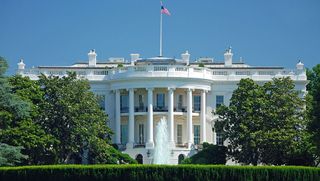Tech giants pledge billions for cyber security
Supply chain security and education commitments feature heavily at White House meeting

Big tech companies unveiled a range of cyber security commitments yesterday in a meeting with President Biden.
The pledges included $30 billion in investments to improve security for consumers, businesses, and government organizations.
The big-ticket item was a $20 billion commitment from Microsoft, which will spend the money integrating cyber security by design over the next five years. The company also pledged $150 million in technical services to upgrade security protection at all three levels of government.
Google made a $10 billion, five-year pledge to improve cyber security by investing in zero-trust programs and supply-chain security. It will also continue efforts to enhance open source security.
Training and education was also featured on the agenda. Google said it would train 100,000 Americans through its Google Career Certificate program, giving them basic skills in areas like IT support and data analytics. I
BM promised to train 150,000 people in cyber security skills in the next three years and committed to partnering with colleges and universities that serve primarily black students to create a more diverse workforce.
Amazon also said it would offer the general public the same security awareness training it gives employees. It will also offer MFA devices to all Amazon Web Services account holders.
Get the ITPro. daily newsletter
Receive our latest news, industry updates, featured resources and more. Sign up today to receive our FREE report on AI cyber crime & security - newly updated for 2024.
Cyber insurance companies also addressed the rising problem of cyber attacks. Insurance company Resilience said it would impose a baseline threshold for cyber security best practices as coverage conditions. This echoes research that showed rising premium costs for cyber insurance and increasing caution among insurers when underwriting cyber policies.
At the meeting, the White House announced the National Institute of Standards and Technology (NIST) would create a new framework to improve technology supply chain security. IBM, Google, and Microsoft will participate, along with insurance companies Travelers and Coalition.
Apple, which recently turned to new Chinese suppliers to make key parts of its iPhone, also promised a program to bolster security within its supply chain.
Other announcements included an expansion of the president's Industrial Control Systems Cybersecurity Initiative to include natural gas pipelines. The government already established the program for electrical utilities earlier this year.
Danny Bradbury has been a print journalist specialising in technology since 1989 and a freelance writer since 1994. He has written for national publications on both sides of the Atlantic and has won awards for his investigative cybersecurity journalism work and his arts and culture writing.
Danny writes about many different technology issues for audiences ranging from consumers through to software developers and CIOs. He also ghostwrites articles for many C-suite business executives in the technology sector and has worked as a presenter for multiple webinars and podcasts.





